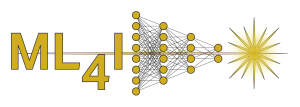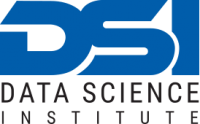Call for Participation
You are invited to participate in the first annual Machine Learning for Industry Forum (ML4I), to be held as a live virtual event the week of August 9, 2021. The intention of ML4I is to foster and illustrate the adoption of ML methods for practical industrial outcomes. The forum will consist of a robust and open dialog between industry, research institutions, vendors, and academia to strengthen the technology transfer of ML methods to industrial needs.
The Forum is free, but pre-registration is required to attend. As a registered participant you are welcome to enjoy the Forum as audience but are also encouraged to actively participate by presenting your own talk according to the topic list below and you may also submit a challenge problem for consideration in advance. Details are in the Call for Presentations and the Call for Challenge Problems below.
What is ML4I?
The LLNL Machine Learning for Industry Forum (ML4I) exists to foster the free exchange of ideas and best practices in applying ML/AI methods for solving practical industrial problems. Industrial participants work with the broader research community and solution vendors to identify the most promising solution strategies and demonstrate methods of data analytics that can achieve actionable outcomes. The industrial participants learn solution strategies for their own needs while the research community gains a broader perspective of ultimate use cases for ML/AI methods. All participants will benefit by a tighter community bond between research and application of data analytical methods.
Key Dates
Call for Presentations Deadline: June 30, 2021
Call for Industry Use Cases Deadline: June 30, 2021
Registration Deadline: July 29, 2021
Forum Topics
The Forum consists of three half-days organized by themes for exploration and exposition. Each day begins with a keynote speaker to set the stage, followed by discussion on topics central to that day’s theme. The three themes are: Industrial Applications, Tools & Ecosystem, and Special Topics.
Day 1: Industrial Applications
Keynote: Devesh Upadhyay, Technical Expert and Leader Core AI-ML Research at Ford Motor Company
Talks in this session will illustrate successes and challenges in applying ML for industrial process control and optimization. Machine learning methods hold great promise for improving and optimizing industrial process control. Outcomes such as improving manufactured part quality or reducing cost and energy of production lines are readily achievable. Key issues are the quality and volume of training data available and choice of solution method.
Talks in this session will consider ML applications that utilize computer vision and robotics as both inputs and outputs. Computer vision capabilities have evolved far beyond identifying cat faces, and robotics control (including autonomous vehicles) is rapidly developing as an achievable outcome.
These summaries will review outcomes from workshops held prior to the forum to evaluate specific use cases submitted by our registrants. The workshops will prepare solution strategies for the use cases to illustrate solution pathways from identifying a need to achieving an ML application to meet the need. Two challenge problems will be chosen prior to the Forum for in-depth analysis by our experts to illustrate the process from identifying the need to reaching a practical outcome.
The registration process includes the option for each registrant to submit a use case for consideration. The analysis of the use cases will occur prior to the Forum and must be submitted by June 30, 2021 for full consideration. If chosen, the submitting registrant agrees to work with the expert panel to support the analysis prior to the Forum. All information provided on the use case should be non-proprietary and free to share with all Forum participants.
Day 2: Tools and Techniques
Keynote: Pieter Abbeel, Professor and Director, UC Berkeley Robot Learning Lab, President and Chief Scientist at Covariant AI.
Talks in this session will examine the process of identifying and applying the best pathways to achieve practical outcomes for a variety of canonical problems. ML solutions strategies are not one size fits all, and an up-front consideration of what you have (e.g. data) and what you need to achieve (e.g. outcomes) will point the way to developing successful applications.
Talks in this session will review and describe the software and hardware ecosystem available to develop ML applications. Software tools range from simple open-source neural network models to deep learning tools that utilize high performance computing. Hardware tools are rapidly evolving to include general purpose hardware found on most workstations to dedicated AI hardware for accelerating the most difficult ML analyses.
Talks in this session will consider data as the fundamental input needed for a successful ML outcome. It is generally true that accuracy of a ML tool improves as the amount and quality of training data increases. Creating quality data for ML use is a deliberate process that should be undertaken with the end use in mind. Old data sets may require significant repair prior to use and new data sets may be inadequate without significant augmentation with auxiliary data. Finally the entire ML community benefits with access to publicly available ML data sets.
Day 3: Special Topics
Keynote: Pamela Isom, Acting Director of the Artificial Intelligence and Technology Office and Deputy Chief Information Officer for Architecture, Engineering, Technology, and Innovation for the United States Department of Energy (DOE)
This panel will discuss ML ecosystem resources and workforce development opportunities of interest to the industrial community. There are public and private purveyors of ML hardware and software that can be accessed by a variety of means. Workforce training can be achieved by many means including traditional academic paths, internships, and on-the-job training. Audience Q&A is encouraged.
This panel will discuss many of the key topics and challenges facing industry when considering dataset security, with an emphasis on datasets used for Machine Learning. Datasets may have many elements to be secured including data that represents proprietary, personal, financial, and security information. There are also legal and ethical issues in maintaining secure data to be considered. In contrast there are also compelling reasons to release datasets for public use, such as to broadly improve the capabilities of machine learning methods for industrial sectors and for public and societal benefit. Navigating these choices is best done with a full understanding of the costs and benefits of each option.
Physics constrained learning uses machine learning to improve predictive numerical models by combining traditional physics-based simulation methods such as finite element analysis, boundary and initial conditions, and data analytical methods such as neural networks. The machine learning component(s) may appear in many ways, such as tracking and correcting an individual physics simulation, by exploring a design space for optimal physical designs, or by mining data for useful outcomes such as quality metrics. These hybrid strategies will improve simulation accuracy, efficiency, and robustness. Talks in this session will illustrate the approach, and also explore hybrid computing systems designed to optimally compute jobs with both data and physics components.
Contact Us
ml4i [at] llnl.gov (ML4I[at]llnl[dot]gov)







